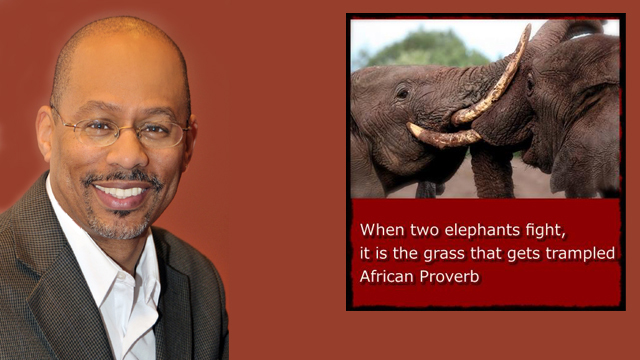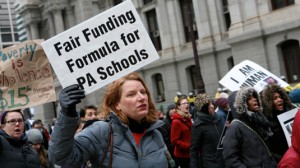
By Rev. David W. Brown, Deacon
For months now, many of us throughout the state have been watching legislators in Harrisburg as they posture back and forth while negotiating a budget that was due for approval back in June.
Now as summer has turned to fall, the Commonwealth of Pennsylvania still does not have an approved state budget. As a result, many social services are at risk, since the state is not authorized to pay its bills until an approved budget is passed by the legislature.
This may sound like much ado about nothing, but the reality is that the Commonwealth of Pennsylvania delivers a significant amount of its services through agencies, nonprofits and faith-based organizations – many of which are United Methodist-related – and those services will stop (or be severely limited) for as long as the state delays its approval.
Here’s how it works.
The state legislature, comprising state senators and state representatives throughout Pennsylvania, and our newly elected Governor, Tom Wolf (Democrat) have to agree on a spending plan that covers everything from funding for schools to highway construction for the fiscal year that begins every year on July 1.
There have been various proposals presented by the mostly Republican legislature to the Governor…and then from the Governor to the legislature…and back again. The two sides are debating what needs to be in the budget in order for either one to concede to the other and pass the budget.
What’s so frustrating is that both the Governor and legislature had months leading up to the June deadline to work out a deal that would be acceptable to all sides, but they failed to do so. Now, both sides are using the impasse to compel each other to accept terms and conditions that – so far – neither have embraced.
So the state can’t spend money until both sides agree on the size, scope and priorities for its 2015 – 2016 budget. When you recognize that the Pennsylvania government purchases billions of dollars in goods and services each year, not spending those dollars has already resulted in a crisis in many communities.
The services that many organizations provide, such as education, medical care, and public safety, are now at risk because the state won’t pay its bills until its budget is passed. And, once the budget is passed (whenever that will be), the state won’t be able to simply turn on the spigot to get the dollars flowing again. With a multi-billion dollar budget, it takes some time to restart the spending engine. So even if the budget passed tomorrow, it would take weeks for overdue bills to get paid.
Right now agencies, nonprofits and other organizations are scrambling to find ways to keep their operations going. Some have laid off staff to cut expenses. Others are seeking other funding sources to keep themselves afloat.
 And all the while, the debate continues in Harrisburg.
And all the while, the debate continues in Harrisburg.
There have been suggestions that the salary paychecks of the legislators and Governor should be withheld as an incentive until they approve a budget. Unfortunately, that would require the legislature to vote on taking such action; so that doesn’t help solve our current crisis.”
But, if this stalemate continues, there will have to be layoffs of state employees, “non-essential” but still important personnel and others who might have a more direct impact on the legislators’ and Governor’s ability to do their own work. However, by that time, our current crisis could be more catastrophic in nature, as our most vulnerable individuals and families might literally die on the vine waiting for services that could not be delivered because the organizations that could have helped ran out of money to do so.
A popular African proverb says, “When elephants fight, the village’s grass suffers.” The state of our state is already fragile. It’s time for our leaders to stop fighting each other for power and fight instead for peace and progress on behalf of the villages they were elected to serve.
Rev. David W. Brown is a United Methodist pastor who works, agitates and writes in Philadelphia. A Deacon in Full Connection, he serves on the ministry staff at Wharton Wesley United Methodist Church in West Philadelphia and on the Conference Communications Ministry Team. He can be reached at Revdavidwbrown@gmail.com.
Meanwhile, child welfare and juvenile justice providers continue to feel devastating effects from the state budget impasse. Because of a political dispute over the allocation of public money, a “funding freeze” is in effect, cutting off all financial support to public programs deemed “non-essential.” This includes child welfare service providers. Now The Alliance for Strong Families and Communities has created a website that automatically sends a letter to your representatives asking them to resolve the crisis and to recognize child welfare/juvenile justice as “essential.” Simply follow this link and enter your zip code and/or address. You can also tweet using the hashtag #PABudget. For suggested tweets, click here.
